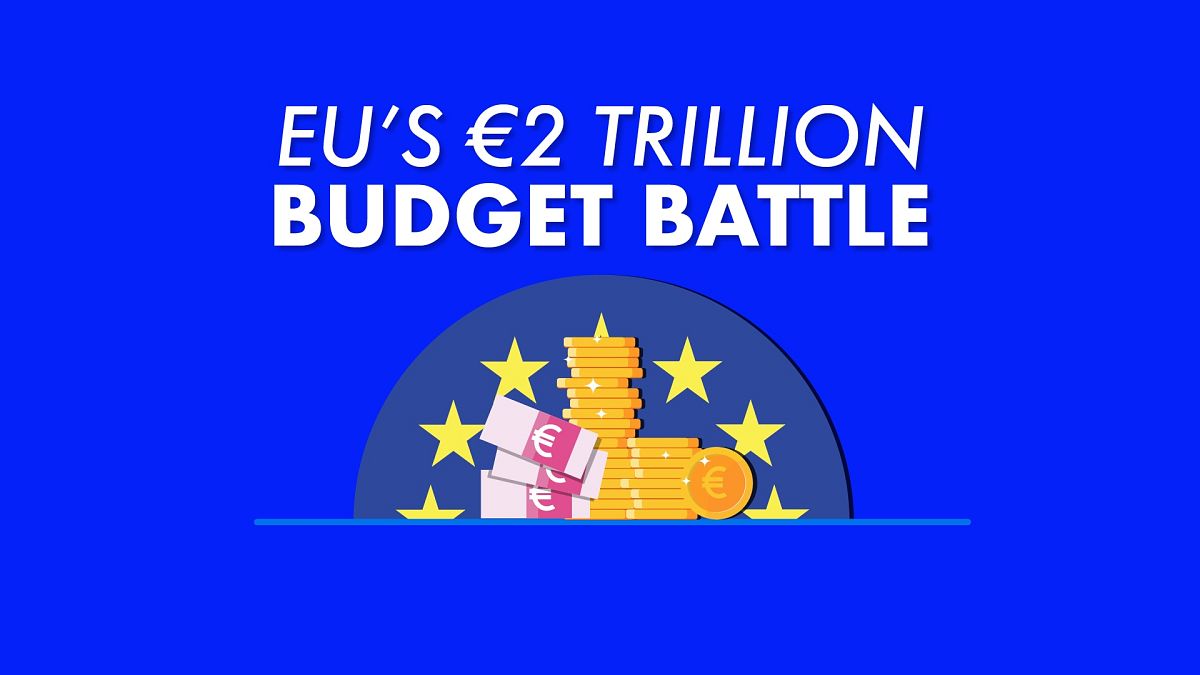Published on
ADVERTISEMENT
Negotiations over the long-term budget — in Brussels speak, the Multiannual Financial Framework (MFF) — are now underway following the European Commission’s presentation of its initial proposal. This has fired the starting gun on a protracted negotiation that is typically among the most heated in Brussels.
The new budget, which covers the period from 2028 to 2034, would represent a 67% increase compared to the previous budget from 2020 to 2027, reaching a total of €2 trillion. This would raise EU spending from 1.13% to 1.26% of the bloc’s gross national income.
Commission President Ursula von der Leyen said the objective is to achieve a simpler, more effective budget that is better aligned with European priorities.
According to Euronews journalist Gerardo Fortuna, who has reported on the topic, in her previous term von der Leyen “faced unprecedented challenges such as the full-scale invasion of Ukraine, the COVID pandemic, and the rise in energy prices.” These challenges demonstrated the EU’s need for more agility — and that is the main feature of the proposed budget: the ability to move money from one area to another when needed. “And the other is, of course, simplification. We used to have over 50 funds, now there are fewer,” Fortuna explained.
Controversy over fund simplification
To achieve this simplification, the Commission is reorganising the budget structure around three main pillars: competitiveness, research and innovation — including war-related defence infrastructure; external action, which will receive around €200 billion, including support for Ukraine; and the merging of traditional funds for agriculture, fisheries, cohesion and social policy.
The fact that the Common Agricultural Policy and the Cohesion Policy — traditionally the largest components of the budget — are now being grouped together and face significant cuts has stirred controversy among farmers and MEPs.
“The Parliament does not support this approach for the next MFF. We believe agriculture and cohesion should remain separate. If they are combined in the same package, they will end up competing with each other for funding. And we don’t think that’s a good idea. It’s not the right path for the future,” Socialist MEP Carla Tavares told Euronews.
Due to this opposition, it is highly unlikely that the Commission’s proposal will be approved in its current form. Some of the EU’s financial heavyweights — such as Germany, the Netherlands, and Sweden — have already rejected the budget, arguing that it is too costly.
A long and difficult road now begins to gain approval for the proposal. Budget negotiations are expected to start in December, when the Danish Presidency of the EU Council will prepare a base document at the next summit. The European Parliament will also be involved, but only to give its final approval once the agreement has been negotiated by the leaders. This process could take up to two years, meaning that citizens will have to wait to find out which areas of their lives will be most affected by changes in EU funding.
Watch the video here!
Journalist: Stefan Grobe
Content production: Pilar Montero López
Video production: Zacharia Vigneron
Graphism: Damaso Jaivenois
Editorial coordination: Ana Lázaro Bosch and Jeremy Fleming-Jones
Read the full article here


